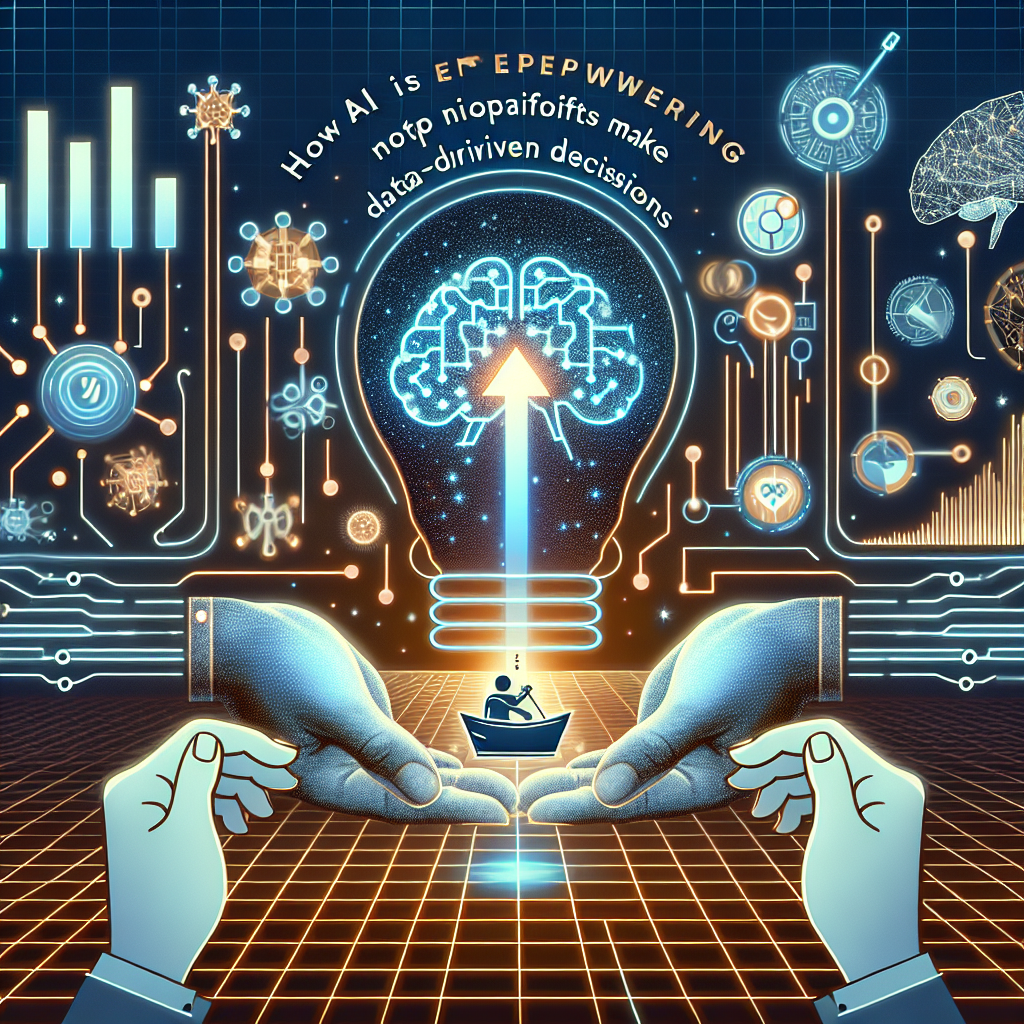Artificial intelligence (AI) is revolutionizing the way nonprofits operate, allowing them to make data-driven decisions that can have a significant impact on their programs and initiatives. By harnessing the power of AI, nonprofits are able to analyze vast amounts of data quickly and accurately, gaining valuable insights that can inform their strategies and drive positive outcomes.
One of the key ways in which AI is empowering nonprofits is through its ability to process and analyze large amounts of data. Nonprofits often collect a wide range of data, from donor information to program outcomes, but without the tools to effectively analyze this data, it can be difficult to extract meaningful insights. AI technologies, such as machine learning algorithms, can process this data at a rapid pace, identifying patterns and trends that humans may not be able to detect. This allows nonprofits to make more informed decisions based on data, rather than relying on intuition or anecdotal evidence.
In addition to analyzing data, AI can also help nonprofits improve their fundraising efforts. By leveraging AI-powered tools, nonprofits can better understand their donors’ preferences and behaviors, allowing them to tailor their fundraising campaigns to be more effective. For example, AI can analyze donor data to identify the best times to send fundraising emails, or to personalize communications based on individual donor preferences. This can help nonprofits increase donor engagement and ultimately raise more funds to support their mission.
AI is also being used to enhance program delivery for nonprofits. By analyzing data on program outcomes and participant feedback, nonprofits can identify areas for improvement and make data-driven decisions to enhance their impact. For example, AI can help nonprofits identify which programs are most effective at achieving their goals, allowing them to allocate resources more efficiently and focus on initiatives that are having the greatest impact. This can lead to better outcomes for the communities and causes that nonprofits serve.
Furthermore, AI can also help nonprofits improve their operations and efficiency. By automating routine tasks, such as data entry or administrative processes, nonprofits can free up time and resources to focus on more strategic initiatives. AI-powered tools can also help nonprofits streamline their operations, reducing costs and improving overall performance. This can allow nonprofits to maximize their impact and reach more people in need.
Overall, AI is empowering nonprofits to make data-driven decisions that can lead to greater impact and effectiveness. By harnessing the power of AI, nonprofits can analyze data more effectively, improve fundraising efforts, enhance program delivery, and streamline operations. This can ultimately help nonprofits achieve their missions more efficiently and effectively, making a positive difference in the world.
FAQs:
1. How can nonprofits get started with AI?
Nonprofits can start by identifying their specific goals and challenges, and then exploring how AI technologies can help address them. There are many AI tools and platforms available that are designed specifically for nonprofits, so it’s important to research and find the right solution for your organization’s needs.
2. Are there any risks associated with using AI in nonprofits?
While AI can offer many benefits to nonprofits, there are also potential risks to consider. For example, there may be concerns about data privacy and security when using AI technologies. It’s important for nonprofits to carefully consider these risks and take steps to mitigate them, such as implementing strong data protection measures and ensuring compliance with relevant regulations.
3. How can AI help nonprofits improve their fundraising efforts?
AI can help nonprofits improve their fundraising efforts by analyzing donor data to identify trends and preferences, personalizing communications to increase donor engagement, and identifying the most effective fundraising strategies. By leveraging AI-powered tools, nonprofits can raise more funds to support their mission and reach their goals.
4. How can AI help nonprofits enhance their program delivery?
AI can help nonprofits enhance their program delivery by analyzing data on program outcomes and participant feedback, identifying areas for improvement, and making data-driven decisions to enhance impact. By leveraging AI technologies, nonprofits can optimize their programs and allocate resources more efficiently to achieve their goals.
5. How can AI help nonprofits streamline their operations?
AI can help nonprofits streamline their operations by automating routine tasks, such as data entry or administrative processes, freeing up time and resources to focus on more strategic initiatives. AI-powered tools can also help nonprofits improve efficiency, reduce costs, and enhance overall performance, allowing them to maximize their impact and reach more people in need.

